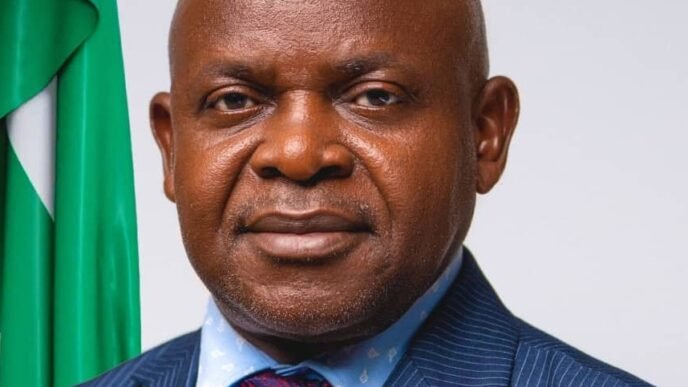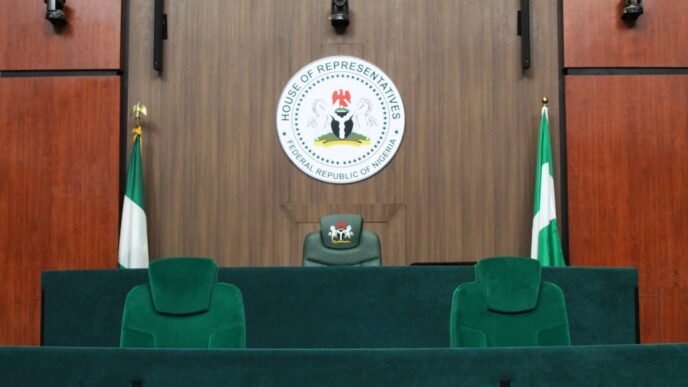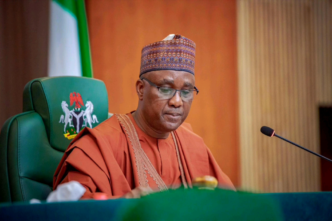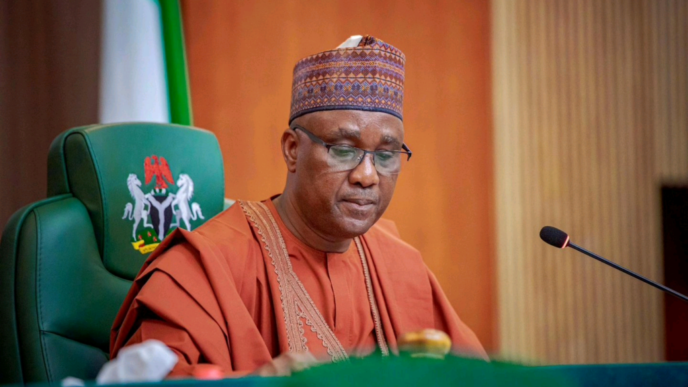HB. 907-A BILL FOR AN ACT TO ALTER THE CONSTITUTION OF THE FEDERAL REPUBLIC OF NIGERIA TO PROVIDE TIME FRAME FOR THE APPOINTMENT OF JUDGES INTO THE SUPREME COURT OF NIGERIA, WITH A VIEW TO PREVENTING VACUUM, THUS ENSURING SPEEDY DELIVERY OF CASES BEFORE THE APEX COURT AND FOR RELATED MATTERS. Bill sponsored by Hon. Sulaiman Abubakar Gumi. Bill Progress: Committee Stage
This Bill seeks to remedy that situation, to alter Section 231 of the Constitution provide for a compulsory timeframe for which a new Judge of the Supreme Court of Nigeria must be mandatorily appointed once there is a vacuum in the number of Judges, with a view to preventing vacuum in the court that is caused either by resignation, death or retirement of an existing judge of the Court. The Bill seeks to ensure speedy delivery of cases before the apex court.
A critical bill, HB 907, is currently under discussion in the Nigerian House of Representatives, aimed at reforming the appointment process for judges of the Supreme Court. The bill’s full title is “A BILL FOR AN ACT TO ALTER THE CONSTITUTION OF THE FEDERAL REPUBLIC OF NIGERIA TO PROVIDE TIME FRAME FOR THE APPOINTMENT OF JUDGES INTO THE SUPREME COURT OF NIGERIA, WITH A VIEW TO PREVENTING VACUUM, THUS ENSURING SPEEDY DELIVERY OF CASES BEFORE THE APEX COURT AND FOR RELATED MATTERS.”
The primary objective of HB 907 is to introduce specific timelines within which appointments to the Supreme Court must be made. Currently, while the Constitution outlines the process for appointing judges, it does not stipulate strict timeframes. This lack of urgency often results in delays, which can lead to a reduced number of justices available to hear cases.
Such delays have significant implications for the judicial system. A smaller Supreme Court bench increases the workload on existing justices, contributing to burnout and slower case resolutions. Moreover, a backlog of cases accumulates, leading to a situation where “justice delayed is justice denied.” This protracted litigation can undermine public confidence in the judiciary and affect timely resolutions of legal matters, particularly those of national importance.
The introduction of a clear timeframe for judicial appointments aims to address these pressing concerns. By setting specific deadlines, the bill seeks to compel both executive and judicial bodies involved in the appointment process—including the President, the National Judicial Council, and the Senate—to act more decisively and promptly.
HB 907 also emphasizes the importance of maintaining the Supreme Court’s judicial capacity. The court is intended to function with a full complement of 21 justices; however, delays in appointing new justices have often left it operating well below this ideal number. By ensuring timely appointments, the bill hopes to enhance the court’s ability to manage its heavy caseload effectively.
The sponsor of HB 907 is Hon. Sulaiman Abubakar Gumi, a member of the House of Representatives. Being a constitutional amendment, the bill will undergo a rigorous legislative process that requires supermajority votes in both chambers of the National Assembly, along with ratification by two-thirds of the State Houses of Assembly.
The discussions surrounding HB 907 reflect an ongoing commitment to improving Nigeria’s judicial efficiency and integrity, with hopes that timely appointments will ultimately lead to more effective justice delivery in the country.











